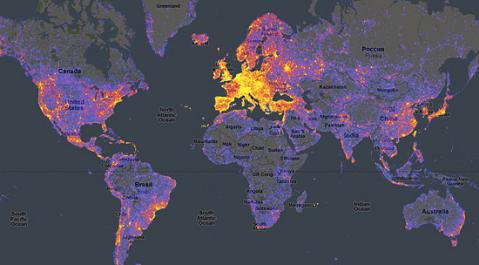
Not much to write about at the moment, so here’s a link to the publicized map of how “touristy” different parts of the world are. What’s interesting about this is that the data is more fine grained than just tourist arrival numbers sorted by country. You can actually see which specific hotspots tourists are flocking too. Of course, it’s all automatically generated based on Panoramio so there’s obvious selection bias in the data. I wouldn’t imagine that many tourists from China for example use the site.
Rather shocking how western Europe is basically one huge tourist hotspot, but some parts of Malaysia are right up there in popularity. You can check out the full map on Google Maps as usual. It seems Google had nothing to do with this. It was just someone’s cool idea to link Google Maps with data from the Panoramio website.
I’ve written about China’s censorship of the Internet before, so I didn’t have much to say that’s new about the brewing dispute between the U.S. and China over the cyberspace attacks that Google recently went public with. However as everyone knows, if Google does pull out of China, the company that stands to gain the most would be Baidu.com, China’s dominant search engine with more than 60 percent of the market. Baidu.com’s shares have duly shot up on the news of Google’s possible withdrawal.
Being a home-grown Chinese company, Baidu of course has absolutely no qualms about enforcing any of the country’s censorship edicts. Since the search engine is actually accessible from anywhere in the world, it’s possible to test it for yourself to see how it filters its results. For an easy test, search for the keywords”falun gong” on Baidu.com and see what happens. Warning: don’t do this if you are actually in China or any territory controlled by China and don’t do this if you’re actually afraid of getting onto China’s hatelist.
The unexamined life is a life not worth living
